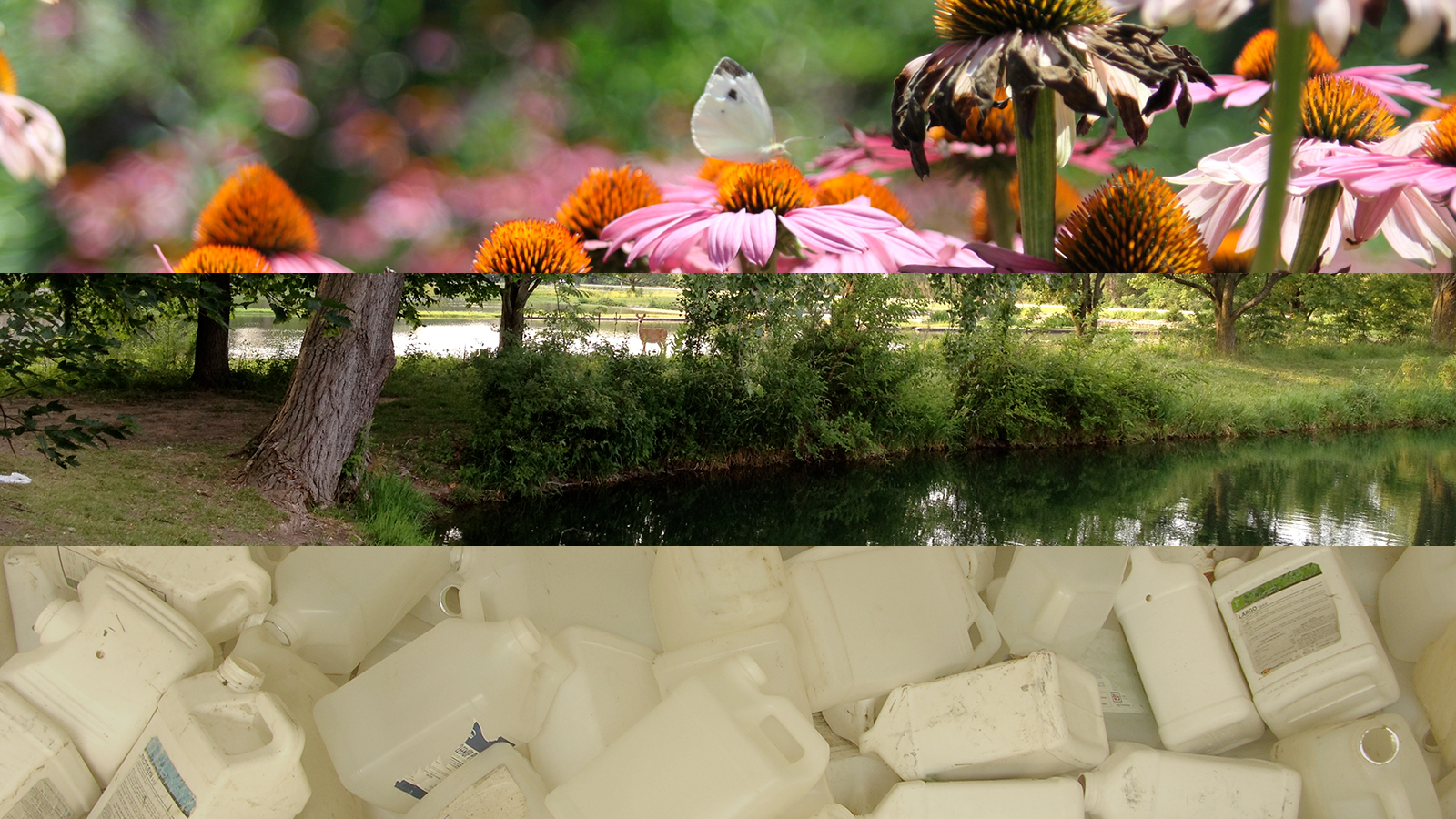Pesticide Safety Education Program Environmental Protection

One of the Pesticide Safety Education Program's (PSEP) goals is to help Nebraska's pesticide applicators protect the environment. In addition to doing this through applicator certification training, we have compiled the resources below to allow for a deeper exploration of the numerous facets of environmental protection pertaining to pesticides.
- Pesticide Container Recycling Program
Find the town nearest you to recycle your plastic pesticide containers. This program is designed to recycle the plastic from triple- or pressure-rinsed pesticide (or crop oil, adjuvant, surfactant) containers (1.0 or 2.5 gallons) or crop protection chemical drums (15, 30, or 55 gallons).
- DriftWatch – Nebraska
Applicators can use this web site to determine if commercial specialty crops or beehives are near a planned pesticide application site so that they can adjust their procedures (timing or application method) accordingly. Listings on the registry are voluntary.
See also: More information from NDA for applicators
- National Pollutant Discharge Elimination System (NPDES)
This general permit for pesticides became effective November 1, 2011. Read the press release, fact sheets, and question & answers for information.
- Burning Empty Pesticide Containers
If you are unable to recycle or landfill your containers, some labels allow burning them. Learn about what you need to do to execute a legal container burn.
- EPA Office of Pesticide Programs
Links to EPA Web pages on pesticide information.
- Herbicide Stewardship and Drift Prevention
In preparing for the application season, please take time to plan your use of herbicides to assure on-target deposition. Find information about responsible and effective applications here.
- Water Protection
All pesticide and fertilizer users should be mindful of protecting surface and ground water from contamination.
- Hazardous Waste Disposal
Pesticide disposal, household hazardous waste disposal, business waste disposal, and recycling programs for cities in Nebraska.
- Recycle DuPont™ Tyvek® Materials
Recycling Tyvek is an environmentally friendly alternative to landfilling. These recycling kits will hold over 250 square feet of Tyvek material, and the price includes the kit, return shipping, and recycling.
- Environmental Protection Publications
These NebGuides offer information on pesticide safety to include sensitive environments, endangered species protection, stormwater management, rinsing containers, spray drift, and cleaning application equipment.